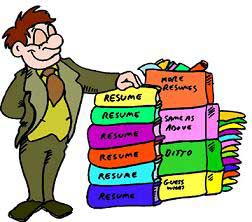 Yesterday, during a meeting with electronic and IT training units in Ho Chi Minh City, Deputy Chairman of the Ho Chi Minh City People’s Committee, Nguyen Thien Nhan, stated that in the near future, major investors will need approximately 9,000 hardware personnel. This presents both opportunities and significant challenges for universities and vocational training institutions in the area.
Yesterday, during a meeting with electronic and IT training units in Ho Chi Minh City, Deputy Chairman of the Ho Chi Minh City People’s Committee, Nguyen Thien Nhan, stated that in the near future, major investors will need approximately 9,000 hardware personnel. This presents both opportunities and significant challenges for universities and vocational training institutions in the area.
According to Mr. Nhan, if investors are left to search for and select their workforce independently, it will take a considerable amount of time. Furthermore, if the city cannot meet their needs, it will be difficult to attract other large international information technology corporations.
“Training institutions need to identify the scale, structure of professions, and the quality of personnel that investors require. What is the gap in skill levels, professional structure, and the pace of workforce supply in the next three years? How can businesses utilize individuals who have been trained or are newly trained?,” Mr. Nhan said. “The city and businesses will not allow for lack of funding. The important issue is that schools must shift from training based on capability to meeting demand.”
At the meeting with training units in Ho Chi Minh City, a representative from Intel indicated that in about five years, the Intel factory in Vietnam will need approximately 1,200 employees. Renesas requires 1,000 engineers, of which 500 must be proficient in English. Meanwhile, Nedec needs up to 3,000 workers… |
According to a survey by the Ho Chi Minh City Department of Posts and Telecommunications, the city currently has around 50 universities and colleges that provide training in information technology, accounting for nearly 50% of such institutions nationwide. In the last six months of 2005, the schools in the city produced approximately 8,300 graduates in information technology, while the hiring demand was only slightly over 1,100 individuals. Thus, the number of trained individuals consistently exceeds the number that companies need to hire.
However, according to the same department, companies in the area continuously “complain” about a lack of workforce, finding recruitment very challenging and time-consuming. This is because most universities and colleges provide students with only basic knowledge during their training. After graduation, most students are not immediately able to meet the hiring requirements of companies.
At the meeting, Mr. Tran Ngoc Cang, the Executive Director of Renesas in Vietnam, also acknowledged that the majority of newly graduated engineers do not meet the company’s hiring standards. Each time a recruitment test is organized, Renesas receives around 500 applications, but only about 300 candidates qualify to take the exam. Ultimately, only 30 candidates pass the final interview. “Candidates fail due to weak language skills and insufficient professional knowledge. They can read English well but cannot engage in conversation. They have studied many subjects but lack depth in any specific area.,” Mr. Cang explained.
Representatives from several universities noted that the schools are not necessarily poorly trained in technical expertise, but rather have not effectively attracted and oriented students towards career paths. The greatest need for students is employment, leading them to easily choose fields that provide immediate hiring opportunities upon graduation. For example, the University of Science and Technology enrolls over 300 students annually, but the majority tend to focus more on software than hardware.
“To be effective, schools need to be facilitated to connect with industrial clusters. This environment is crucial for practical experimentation, program evaluation, and adjustments. Schools will then have the direction to reduce academic rigidity, update modern knowledge, and promptly meet employer demands.,” said Mr. Nguyen Tan Phat, Director of the National University of Ho Chi Minh City.
Following Deputy Chairman Nguyen Thien Nhan’s directive, the Department of Posts and Telecommunications and universities will collaborate with local investors to establish a task force dedicated to preparing the workforce for information technology. In August, the city’s People’s Committee and this task force will agree on plans to build laboratories for the schools, provide short-term training for major investors, and anticipate the arrival of other entities.
Thanh Luong




















































